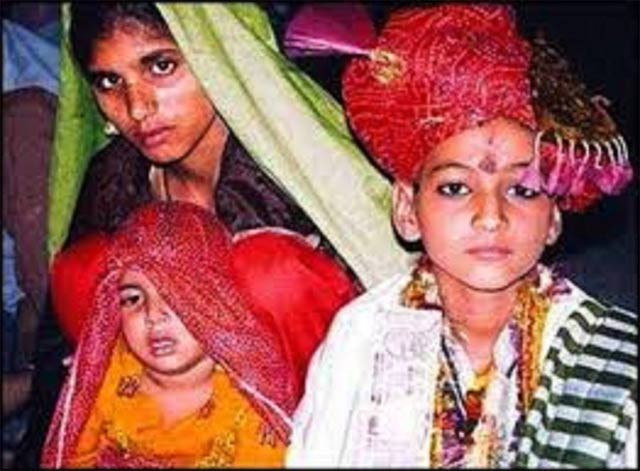Pakistan lags behind in curbing child marriages
UNICEF report says one in four girls in South Asia married before 18th birthday

A report stated that Maldives, Sri Lanka, and Pakistan were ranked first, second, and third, respectively, in South Asian countries in reducing early marriages.
Although South Asia was leading the world in reducing child marriage, it would take 55 years to completely eradicate it if it did not accelerate, read a United Nations Children’s Fund (UNICEF) report, while also acknowledging Pakistan’s efforts in this connection.
The report added that to achieve the goal of ending child marriages by 2030, the speed of reforms in South Asia should be accelerated seven times.
About 18% of girls in Pakistan are still married as children, numbering 1.9 million.
That means one in six girls in Pakistan are married at an early age, even though the legal minimum age for marriage in the country is 18 years.
However, the rate of child marriage in Pakistan is slightly better than the world average of 19%, especially in compared with India, Bangladesh, Afghanistan, Nepal, and Bhutan, which lag far behind.
Bangladesh has the highest child marriage rate in South Asia at 51%, while the lowest is in the Maldives at just 2%. India’s child marriage rate is 34%, where one in three girls are married at an early age.
Even though South Asia is leading in the world in reducing child marriage, yet one in four girls in the region is married before their 18th birthday.
The number of child brides in South Asian countries is around 300 million, which is 45% of the world population.
Three out of every four brides in the region give birth when they are still teenagers.
According to a UNICEF survey, 55% of brides in Pakistan believe that wife beating is permissible.
Around 41% of women in India and 33% in Bangladesh also consider violence by their husbands as valid.
“Girls who marry in childhood face immediate and lifelong consequences. They are less likely to remain in school, and face an increased risk of early pregnancy, in turn increasing the risk of child and maternal health complications and mortality,” a UNICEF news statement read.
It added that the practice could also isolate girls from family and friends, as well as exclude them from participating in their communities.
This takes a heavy toll on these girls’ mental health and well-being.
“Worldwide, conflict, climate-related disasters, and the ongoing impacts of Covid-19 -- especially rising poverty, income shocks, and school dropout -- are helping to increase the drivers of child marriage. [It is] also making it difficult for girls to access health care, education, social services and community support that protect them from child marriage,” it noted.
UNICEF Executive Director Catherine Russell said they had proven that progress to end child marriage was possible.
“It requires unwavering support for vulnerable girls and families,” she added.
“We must focus on keeping girls in school and making sure they have economic opportunities,” the UNICEF official continued.



















COMMENTS
Comments are moderated and generally will be posted if they are on-topic and not abusive.
For more information, please see our Comments FAQ